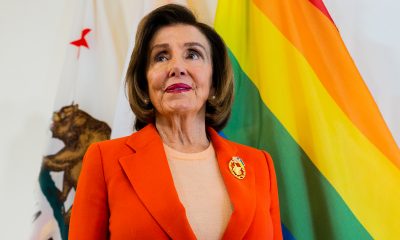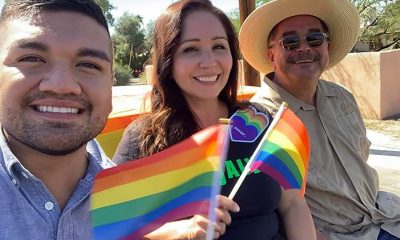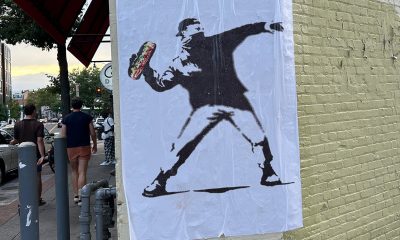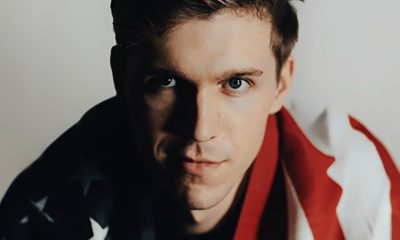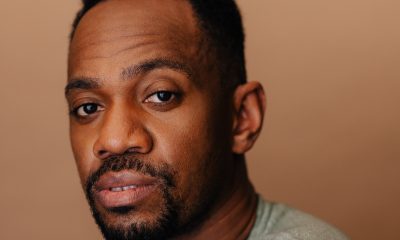News
Obama announces initiative to develop HIV cure
President allocates $100 million for NIH research against disease
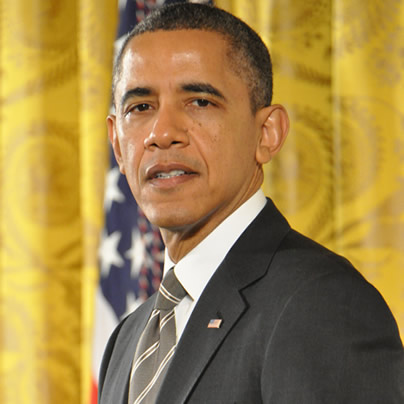
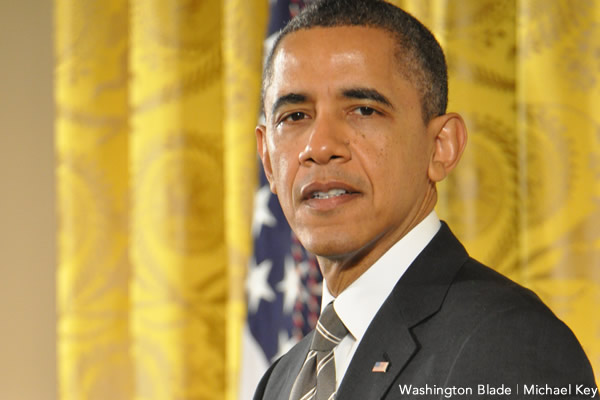
President Obama announced $100 million in funding for NIH to develop an HIV cure (Washington Blade file photo by Michael Key).
President Obama announced on Monday he’s redirecting $100 million at the National Institutes of Health for a new initiative to develop a cure for HIV as part of his vision for an “AIDS-free generation.”
Obama made the announcement when speaking before a group of HIV/AIDS advocates at a White House event observing World AIDS Day in the South Court Auditorium of the Eisenhower Executive Office Building.
“The United States should be at the forefront of new discoveries in how to put HIV into long-term remission without requiting live-long therapies, or better yet, eliminate it completely,” Obama said.
In a fact sheet published after the event, the White House clarified the $100 million would be distributed over the course of three years and would catalyze further research for new therapies to improve outcomes for people with HIV.
Rowena Johnston, amfAR’s vice president and director of research, said in a statement after the event the administration’s efforts to find a cure for HIV would build off previous successes in the past year.
“This year, we saw a series of breakthroughs in HIV cure research that have brought us more clarity than we’ve ever had on the precise steps and tools needed to finally end AIDS,” Johnston said. “We cannot achieve the President’s goal of an AIDS-free generation without continued investment in the research necessary to ultimately help us find a cure for this disease.”
The event was part of the rollout for a new White House report on confronting HIV/AIDS, titled “Improving Outcomes: Accelerating Progress Along the HIV Care Continuum.” The report describes the state of the epidemic, makes recommendations going forward and highlights local successes as well as public-private partnerships.
In his remarks, Obama said significant progress has made in confronting HIV/AIDS since Congress first allocated funds to fight the disease in 1983, but certain communities continue to be affected more than others, including LGBT people and the D.C. area.
“Here in the United States, we need to keep focusing on investments to communities that are still being hit hardest, including gay and bisexual men, African-Americans and Latinos,” Obama said. “We need to keep up the fight in our cities — including Washington, D.C., which in recent years has reduced diagnosed infections by nearly half.”
As Assistant to the President on Domestic Policy Cecilia Munoz pointed out at the start of the event, the Centers for Disease Control has reported gay and bisexual men account for two-thirds of all new HIV infections in the United States.
Obama said after his remarks were over, he would sign into law the PEPFAR Stewardship and Oversight Act of 2013, which reauthorizes and extends funds under the Bush-era President’s Emergency Plan for AIDS Relief to confront HIV/AIDS overseas.
The PEPFAR program, Obama said, has exceeded goals set two years ago to help 6 million people across the globe receive treatment for HIV/AIDS by the end of 2013. As it stands, Obama said the program has helped 6.7 million people receive treatment.
As part of the related effort to maintain the Global Fund to Fight AIDS, Tuberculosis & Malaria, Obama said the United States will contribute $1 for every $2 pledged by other donors over the next three years, up to $5 billion total.
“Don’t leave our money on the table,” Obama said. “It’s been inspiring to see the countries most affected by this disease vastly increase their own contributions to this fight — in some cases, providing more than donor countries do. And that ought to inspire all of us to give more, to do more, so we can save more lives.”
Other accomplishments Obama touted was an end to waiting lists for drugs under the AIDS Drug Assistance Program. Two years after the Department of Health & Human Services announced that Obama directed $35 million to end the wait lists for federal drugs for HIV/AIDS, Obama said wait lists have since been eliminated.
“At one time, the needs was so great that over 9,000 people were on the wait list,” Obama said. “We vowed to get those numbers down, and I’m proud to announce that, as of last week, we have cleared that wait list. We are down to zero.”
Other initiatives Obama mentioned included old accomplishments, such as the lifting of the HIV travel ban, and new efforts, including the signing of the HIV Organ Policy Equity Act, or HOPE Act, which enables HIV-positive people to donate organs to others with the disease.
Additionally, Obama said early next year the United States will host a meeting with worldwide partners — including governments, the Global Fund, U.N.-AIDS, and civil society — to “sit around one table and develop joint HIV prevention and treatment goals for the countries where we and the Global Fund do business.”
“We’ll hold each other accountable, and we’ll continue to work to turn the tide of this epidemic together,” Obama said.
Carl Schmid, deputy director of the AIDS Institute and attendee at the event, praised Obama for the new initiatives, but said more work is necessary, particularly to address the HIV/AIDS infection rate among gay men.
“We are not making progress when it comes to gay men and more must be done,” Schmid said. “We hope that the Administration along with the states and community based organizations follow the Strategy and, as was discussed at the White House today, follow the science and the epidemic, and for the US, that means a greater focus needs to be on gay men.”
A number of high-profile members of the Obama administration were present at the event, including Secretary of State John Kerry, Secretary of Health & Human Services Kathleen Sebelius, Senior Advisor to the President Valerie Jarrett, Director of the Office of National AIDS Policy Grant Colfax, Assistant to the President on Domestic Policy Cecilia Munoz and Microsoft co-founder and philanthropist Bill Gates.
In remarks that followed Obama’s, Kerry compared the international alliances that have formed to confront HIV/AIDS to similar alliances that have effected change at a global level.
“We are the nation that faced down the Soviet Union with the force of our ideals and our alliances, and without resorting to the force of arms,” Kerry said. “Now, no exaggeration, in our own time, in this generation, in our fight against AIDS – yes, in a different way, but no less important – we are able to engage in an initiative that can help define our nation and the global spirit.”
Jarrett maintained the administration is committed to confronting HIV/AIDS both at home and abroad because successful efforts overseas requires attention to the epidemic within U.S. borders.
“HIV remains a priority for the administration, and for the president, both here and abroad,” Jarrett said. “We’re committed to PEPFAR and the Global Fund, and to ongoing implementation of the National HIV/AIDS Strategy because the global response also requires a sustained national response to the epidemic right here at home.”
Also present at the event was HIV/AIDS advocate Rep. Barbara Lee (D-Calif.). In an apparent ad-lib from his remarks when he mentioned he would soon sign legislation to continue funding for PEPFAR, Obama recognized excitement from Lee as she applauded and said, “Count on the legislator to applaud legislation.”
After the event, Lee told the Washington Blade she was proud of Obama’s efforts in confronting HIV/AIDS and looks forward to his continued leadership to create a world without the disease.
“I think everything that this administration is doing is leading us to that, and fighting for an AIDS-free generation, and that’s the next step,” Lee said.
Obama concluded his remarks by articulating his vision for an “AIDS-free generation” in which all people can protect themselves from infection and all people with the disease have access to treatment.
“That’s the world I want for my daughters,” Obama said. “That’s the world that all of us want for our families. And if we stay focused, if we keep fighting, and if we honor the memory of those that we’ve lost, if we summon the same courage that they displayed, by insisting on whatever it takes, however long it takes, I believe we’re going to win this fight.”
U.S. Supreme Court
Supreme Court rules White House can implement anti-trans passport policy
ACLU, Lambda Legal filed lawsuits against directive.

The U.S. Supreme Court on Thursday said the Trump-Vance administration can implement a policy that bans the State Department from issuing passports with “X” gender markers.
President Donald Trump once he took office signed an executive order that outlined the policy. A memo the Washington Blade obtained directed State Department personnel to “suspend any application where the applicant is seeking to change their sex marker from that defined in the executive order pending further guidance.”
The White House only recognizes two genders: male and female.
The American Civil Liberties Union in February filed a lawsuit against the passport directive on behalf of seven trans and nonbinary people.
A federal judge in Boston in April issued a preliminary junction against it. A three-judge panel on the 1st U.S. Circuit Court of Appeals in September ruled against the Trump-Vance administration’s motion to delay the move.
A federal judge in Maryland also ruled against the passport policy. (Lambda Legal filed the lawsuit on behalf of seven trans people.)
“This is a heartbreaking setback for the freedom of all people to be themselves, and fuel on the fire the Trump administration is stoking against transgender people and their constitutional rights,” said Jon Davidson, senior counsel for the ACLU’s LGBTQ and HIV Project, in a statement. “Forcing transgender people to carry passports that out them against their will increases the risk that they will face harassment and violence and adds to the considerable barriers they already face in securing freedom, safety, and acceptance. We will continue to fight this policy and work for a future where no one is denied self-determination over their identity.”
Justices Ketanji Brown Jackson, Elena Kagan, and Sonia Sotomayor dissented.
The Supreme Court ruling is here.
District of Columbia
‘Sandwich guy’ not guilty in assault case
Sean Charles Dunn faced misdemeanor charge
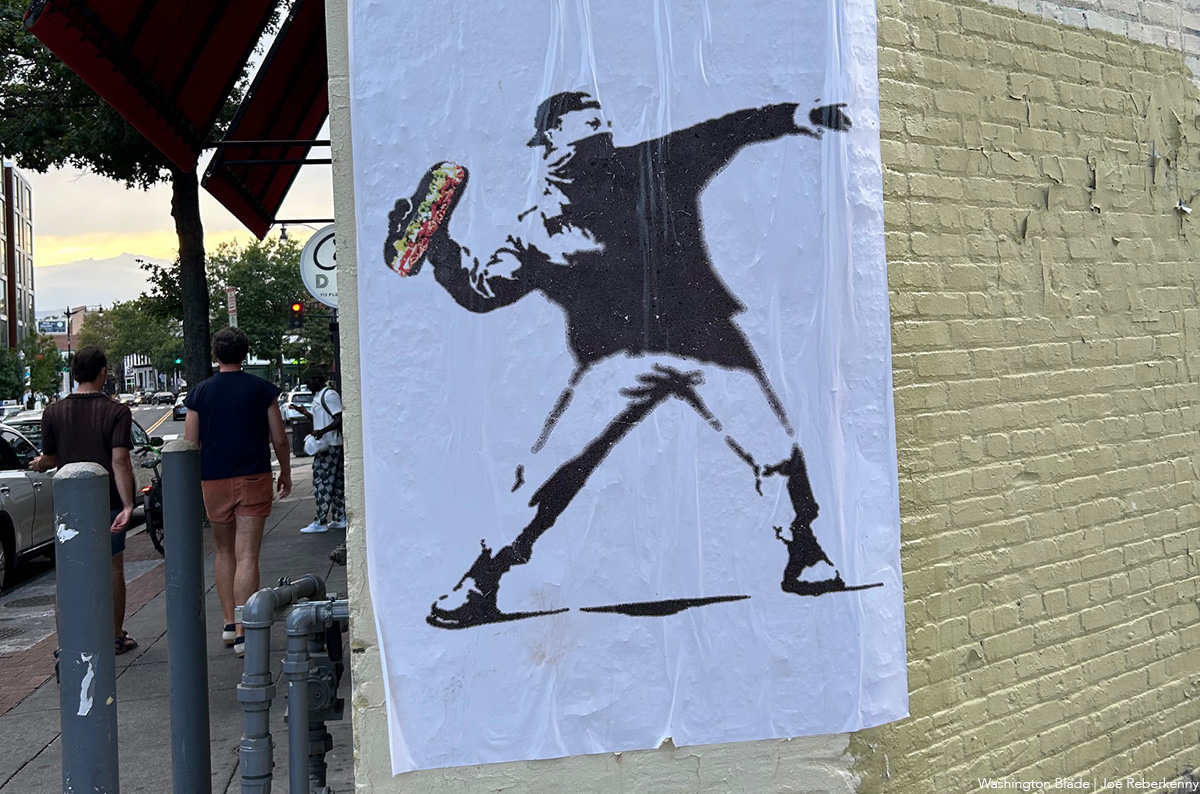
A jury with the U.S. District Court for the District of Columbia on Thursday, Nov. 6, found D.C. resident Sean Charles Dunn not guilty of assault for tossing a hero sandwich into the chest of a U.S. Customs and Border Protection agent at the intersection of 14th and U streets, N.W. at around 11 p.m. on Aug. 10.
Dunn’s attorneys hailed the verdict as a gesture of support for Dunn’s contention that his action, which was captured on video that went viral on social media, was an exercise of his First Amendment right to protest the federal border agent’s participating in President Donald Trump’s deployment of federal troops on D.C. streets.
Friends of Dunn have said that shortly before the sandwich tossing incident took place Dunn had been at the nearby gay nightclub Bunker, which was hosting a Latin dance party called Tropicoqueta. Sabrina Shroff, one of three attorneys representing Dunn at the trial, said during the trial after Dunn left the nightclub he went to the submarine sandwich shop on 14th Street at the corner of U Street, where he saw the border patrol agent and other law enforcement officers standing in front of the shop.
Shroff and others who know Dunn have said he was fearful that the border agent outside the sub shop and immigrant agents might raid the Bunker Latin night event. Bunker’s entrance is on U Street just around the corner from the sub shop where the federal agents were standing.
“I am so happy that justice prevails in spite of everything happening,“ Dunn told reporters outside the courthouse after the verdict while joined by his attorneys. “And that night I believed that I was protecting the rights of immigrants,” he said.
“And let us not forget that the great seal of the United States says, E Pluribus Unum,” he continued. “That means from many, one. Every life matters no matter where you came from, no matter how you got here, no matter how you identify, you have the right to live a life that is free.”
The verdict followed a two-day trial with testimony by just two witnesses, U.S. Customs and Border Protection agent Gregory Lairmore, who identified Dunn as the person who threw the sandwich at his chest, and Metro Transit Police Detective Daina Henry, who told the jury she witnessed Dunn toss the sandwich at Lairmore while shouting obscenities.
Shroff told the jury Dunn was exercising his First Amendment right to protest and that the tossing of the sandwich at Lairmore, who was wearing a bulletproof vest, did not constitute an assault under the federal assault law to which Dunn was charged, among other things, because the federal agent was not injured.
Prosecutors with the Office of the U.S. Attorney for D.C. initially attempted to obtain a grand jury indictment of Dunn on a felony assault charge. But the grand jury refused to hand down an indictment on that charge, court records show. Prosecutors then filed a criminal complaint against Dunn on the misdemeanor charge of assaulting, resisting, or impeding certain officers of the United States.
“Dunn stood within inches of Victim 1,” the criminal complaint states, “pointing his finger in Victim 1’s face, and yelled, Fuck you! You fucking fascists! Why are you here? I don’t want you in my city!”
The complaint continues by stating, “An Instagram video recorded by an observer captured the incident. The video depicts Dunn screaming at V-1 within inches of his face for several seconds before winding his arm back and forcefully throwing a sub-style sandwich at V-1.
Prosecutors repeatedly played the video of the incident for the jurors on video screens in the courtroom.
Dunn, who chose not to testify at his trial, and his attorneys have not disputed the obvious evidence that Dunn threw the sandwich that hit Lairmore in the chest. Lead defense attorney Shroff and co-defense attorneys Julia Gatto and Nicholas Silverman argued that Dunn’s action did not constitute an assault under the legal definition of common law assault in the federal assault statute.
Assistant U.S. Attorney Michael DiLorenzo, the lead prosecutor in the case, strongly disputed that claim, citing various provisions in the law and appeals court rulings that he claimed upheld his and the government’s contention that an “assault” can take place even if a victim is not injured as well as if there was no physical contact between the victim and an alleged assailant, only a threat of physical contact and injury.
The dispute over the intricacies of the assault law and whether Dunn’s action reached the level of an assault under the law dominated the two-day trial, with U.S. District Court Judge Carl J. Nichols, who presided over the trial, weighing in with his own interpretation of the assault statute. Among other things, he said it would be up to the jury to decide whether or not Dunn committed an assault.
Court observers have said in cases like this, a jury could have issued a so-called “nullification” verdict in which they acquit a defendant even though they believe he or she committed the offense in question because they believe the charge is unjust. The other possibility, observers say, is the jury believed the defense was right in claiming a law was not violated.
DiLorenzo and his two co-prosecutors in the case declined to comment in response to requests by reporters following the verdict.
“We really want to thank the jury for having sent back an affirmation that his sentiment is not just tolerated but it is legal, it is welcome,” defense attorney Shroff said in referring to Dunn’s actions. “And we thank them very much for that verdict,” she said.
Dunn thanked his attorneys for providing what he called excellent representation “and for offering all of their services pro bono,” meaning free of charge.
Dunn, an Air Force veteran who later worked as an international affairs specialist at the U.S. Department of Justice, was fired from that job by DOJ officials after his arrest for the sandwich tossing incident.
“I would like to thank family and friends and strangers for all of their support, whether it was emotional, or spiritual, or artistic, or financial,” he told the gathering outside the courthouse. “To the people that opened their hearts and homes to me, I am eternally grateful.”
“As always, we accept a jury’s verdict; that is the system within which we function,” CNN quoted U.S. Attorney for D.C. Jeanine Pirro as saying after the verdict in the Dunn case. “However, law enforcement should never be subjected to assault, no matter how ‘minor,’” Pirro told CNN in a statement.
“Even children know when they are angry, they are not allowed to throw objects at one another,” CNN quoted her as saying.
The White House
Political leaders, activists reflect on Dick Cheney’s passing
Former VP died on Monday at 84
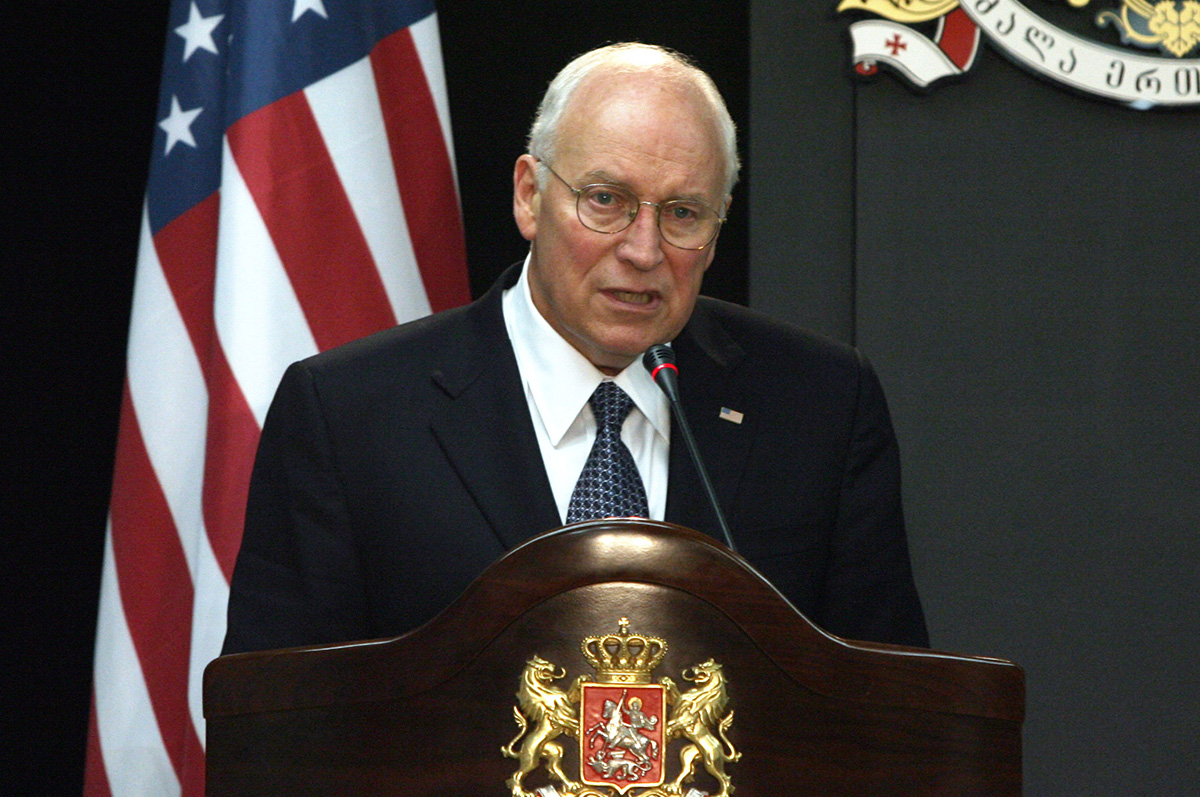
Dick Cheney, the 46th vice president of the United States who served under President George W. Bush, passed away on Monday at the age of 84. His family announced Tuesday morning that the cause was complications from pneumonia and cardiac and vascular disease.
Cheney, one of the most powerful and influential figures in American politics over the past century, held a long and consequential career in public service. He previously served as White House chief of staff for President Gerald Ford, as the U.S. representative for Wyoming’s at-large congressional district from 1979-1989, and briefly as House minority whip in 1989.
He later served as secretary of defense under President George H.W. Bush before becoming vice president during the George W. Bush administration, where he played a leading behind-the-scenes role in the response to the Sept. 11 attacks and in coordinating the Global War on Terrorism. Cheney was also an early proponent of the U.S. invasion of Iraq, falsely alleging that Saddam Hussein’s regime possessed weapons of mass destruction and had ties to al-Qaeda.
Cheney’s personal life was not without controversy.
In 2006, he accidentally shot Harry Whittington, a then-78-year-old Texas attorney, during a quail hunt at Armstrong Ranch in Kenedy County, Texas — an incident that became the subject of national attention.
Following his death, tributes and reflections poured in from across the political spectrum.
“I am saddened to learn of the passing of former Vice President Dick Cheney,” former Vice President Kamala Harris posted on X. “Vice President Cheney was a devoted public servant, from the halls of Congress to many positions of leadership in multiple presidential administrations,” she added. “His passing marks the loss of a figure who, with a strong sense of dedication, gave so much of his life to the country he loved.”
Harris was one of the Democrats that the Republican had supported in recent years following Trump’s ascent to the White House.
Former President Joe Biden, who served as former President Obama’s vice president, said on X that “Dick Cheney devoted his life to public service — from representing Wyoming in Congress, to serving as Secretary of Defense, and later as vice president of the United States.”
“While we didn’t agree on much, he believed, as I do, that family is the beginning, middle, and end. Jill and I send our love to his wife Lynne, their daughters Liz and Mary, and all of their grandchildren,” he added.
Human Rights Campaign Senior Vice President of Federal and State Affairs JoDee Winterhof reflected on Cheney’s complicated legacy within the LGBTQ community.
“That someone like Dick Cheney, whose career was rife with anti-LGBTQ+ animus and stained by cruelty, could have publicly changed his mind on marriage equality because of his love for his daughter is a testament to the power and necessity of our stories.”
-

 District of Columbia19 hours ago
District of Columbia19 hours ago‘Sandwich guy’ not guilty in assault case
-

 Sports1 day ago
Sports1 day agoGay speedskater racing toward a more inclusive future in sports
-

 Celebrity News3 days ago
Celebrity News3 days agoJonathan Bailey is People’s first openly gay ‘Sexiest Man Alive’
-

 Theater5 days ago
Theater5 days agoReggie White explores the many definitions of home in ‘Fremont Ave.’



